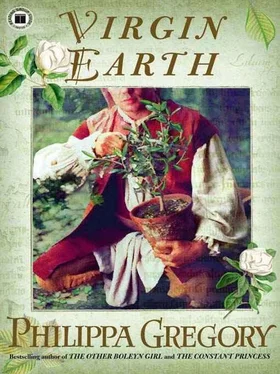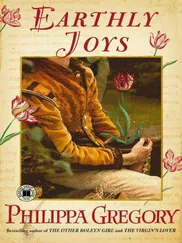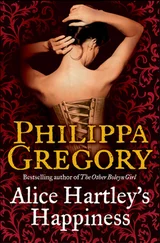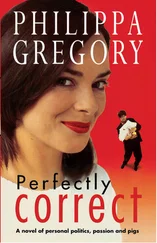“Should I warn Major General Lambert?” John asked Hester as they prepared for bed that night.
“That Charles Stuart is preparing an uprising?” she asked. She twisted her hair into a loose knot and tied her cap on her head. “He must know already. There’s been nothing but promises of another royal invasion ever since Cromwell died.”
“I don’t like to be a spy,” John said uneasily. “But I don’t like being drawn in.”
Hester chuckled. “I doubt they’ll come again for help to you after what Frances said.”
John shook his head, smiling. “What a fishwife!” he said. “Whatever would Alexander have thought?”
“He knew her,” Hester said. “It would have come as no surprise to him. She was never a docile girl.”
“She’s a complete trooper,” John said. “I think you must have brought her up very badly, my wife.”
Hester gleamed at him and got into bed. “I did,” she said. “But she’s a woman who knows her own mind. Give me credit for that at least.”
In the morning John wrote a note to John Lambert and sent it to him at Whitehall.
Your lordship,
I have heard that there is to be an uprising for Charles Stuart on 1 August. I know no more than this, and I wish with all my heart that I did not know this.
John Tradescant
He received a reply brought by one of Lambert’s troopers, a man with a head like a cannon ball and a wide toothless grin.
Mr. Tradescant,
If this is the first you have heard of the uprising then you are too much out of the way in Lambeth. They came to try to recruit me for it in June.
In any case, thank you for your loyalty to our great republic.
Lambert
Lambert might joke about the royalist indiscretion, but there was enough support for their cause for there to be uprisings all over the country. Every village, every town, was divided again between men who would fight for their liberties and men who would fight for their king. Some of them wanted a more lasting solution than a succession of argumentative parliaments. Some of them wanted a return to the old days of inefficient tax collection, and sports in the churchyard on Sunday. Some of them wanted the rich rewards that an incoming monarch must bring. Some of them hoped to get their old places back. Some were Roman Catholics, gambling on the widespread belief that the Stuarts were always Papists. One or two may even have believed that the libertine in the Hague was the best hope for the country. None of the fights came to more than a few broken windows and a couple of brawls except in the case of Sir George Booth at Chester.
The Parliament, in grave fright at the news of an armed uprising, ordered five regiments to march to Cheshire led by Major General Lambert. Lambert left his botanical paintings, his rare garden, his orange garden and his ornamental pheasants, kissed his wife good-bye and rode at the head of his restored regiment westward.
He met Sir George Booth’s army at Winnington Bridge. Booth had one thousand men under the royal standard and Lambert had his full complement of four thousand. The outcome could not be in doubt. There was a brief, efficient battle which was notable for its economy and discipline. Only thirty men died and the rebellion was over. Lambert held his troops in tight order and there was no cruelty or looting or taking quarter. The royalist army were relieved of their weapons with careful courtesy and sent back to their homes.
Sir George Booth fled the battlefield disguised as a woman but was arrested when an innkeeper noticed that his “lady” guest had called for a barber and a razor.
“Inspired,” Lambert said briefly, and ordered that Sir George Booth be taken to London for his trial for treason.
Lambert’s popularity rose and he was declared the savior of the nation in every ale shop and tavern down the Great North Road. More particular were the thanks of the Quakers who came under his protection while he scotched the last of the royalist rebellions. By the end of August he was recognized as the greatest man in the kingdom and a grateful Parliament voted him a gift of one thousand pounds.
In September, on his way back to London down the North Road, Lambert sent John Tradescant a note which read:
You may not have heard that John Mordaunt has left England to join the court of Charles Stuart at the Hague. He has had so many disappointments that I dare say one was no more memorable than another. Whatever happens in the future, Mordaunt’s enmity will not be anything to fear.
Before Lambert returned to London his army sent another petition to the House of Commons. Their list of requests was coming to be known as the “Grand Old Cause,” the cause of the Ironsides, the cause of the Levelers, the cause of the republicans. They demanded godly reforms, a proper command structure for the army, Parliament to be run by elected members advised by a senate, and court-martial law in the army.
The House of Commons, always an unfaithful friend when the victory had been won, decided that the army was demanding reforms rather than requesting, and was probably marching on Parliament to seize power. In a frenzy of panic they ordered that the doors should be shut and Major General Lambert, so recently their hero, should be regarded as an enemy of Parliament and arrested for treason.
In early October John Tradescant received a magnificent order for spring bulbs from John Lambert who gave Wimbledon House as his address.
“So he’s exiled again,” John observed to Hester. “They don’t have the courage to send him to the Tower but they don’t dare let him near Parliament. They must be mad not to make him Lord Protector.”
“They’re terrified,” she said. “They think of nothing but saving their own skins. A parliament run by Lambert would reform them out of existence. He has no patience with time-servers. Did he write all this to you?”
“No, it’s just an order for bulbs.”
“Then how d’you know he’s in exile?”
John grinned. “He always orders too many when he has been thrown out of power. He couldn’t plant all these if he had three autumns under house arrest.”
John could have sent the lad with the three sacks of bulbs but his curiosity was too great. He himself drove the cart into the stable yard at Wimbledon and was directed to the pheasant garden where his Lordship was feeding his birds.
Lambert, holding a basket of grain, was surrounded by his ornamental pheasants, their plumage brilliant in the autumn sunshine. He turned quickly when he heard a footstep on the gravel behind him, but when he recognized John he smiled his sweet smile. “Ah, Mr. Tradescant, have you brought my bulbs yourself?”
“Yes, my lord,” John said. “I am sorry to learn that you are confined here.”
“Oh,” Lambert said equably. “Fortunes rise and fall in politics as well as in battles. In any case, you find me bidding farewell to my birds now because I expect to be summoned today.”
“To battle or to politics?” John asked.
Lambert grinned. “They’re much the same.” He cocked his head. “Listen. D’you hear anything?”
John listened, then heard the steady beat of a company of horse in trot, and the jingle of armor. “Soldiers,” he said.
“Then I think this is my summons,” Lambert remarked and John could hear the exultant joy in his voice at the prospect of action. “Ask them at the stables to saddle my charger for me, would you, Mr. Tradescant? I don’t think I’m going to be able to plant bulbs today.”
“Can I come too?” John asked.
Lambert laughed. “If you wish it. D’you have any idea where we are going?”
“No,” John confessed.
Читать дальше
Конец ознакомительного отрывка
Купить книгу












